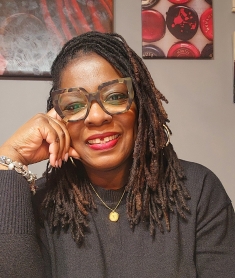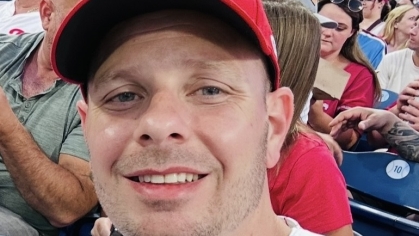
Born in Elizabeth, New Jersey, and raised in Newark, Kareemah Harris-Baker’s story is one of resilience. As an adoptee who lost both her adoptive parents by the age of nine, Kareemah’s early life was shaped by profound transitions—and an unwavering sense of purpose instilled by her late parents.
From a young age, Kareemah was taught the importance of family and community. Her adoptive mother, affectionately known as “Aunt Nettie” in the neighborhood, lovingly raised Kareemah and her four adoptive brothers while making it a point to honor and preserve connections to their birth families. That same commitment to connection would later drive Kareemah’s own advocacy for children in the foster care system.
Despite personal upheavals—including navigating a new family dynamic after her sister became her caregiver—Kareemah eventually found her calling. Having firsthand experience in the foster care system, she knew she wanted to make a difference for others walking a similar path.
That conviction led her to a two-decade-long career with New Jersey’s Department of Children and Families, where she has worn many hats—from case manager to supervisor to, most recently, Assistant Director of the Office of Adoption Operations. “It’s a full-circle moment,” she reflects, standing at the intersection of lived experience and policymaking.
But it was at Rutgers where Kareemah sharpened her tools for systems change. She earned her MPA from the School of Public Affairs and Administration in Newark in 2009, and later returned to Rutgers to pursue a Master of Social Work degree through the Intensive Weekend Program.
Going back to school while balancing the responsibilities of a wife, mother, caregiver, and administrator was no small feat. “Reset became my word,” she says. “It was about learning how to breathe through it all—parenting, caregiving, school, and work.” She found support in her small cohort at the School of Social Work and engaged deeply with the close-knit academic community that encouraged meaningful conversations.
For Kareemah, the program was more than just academic—it was therapeutic. It taught her how to apply concepts like emotional regulation in real time, especially as she navigated life changes, from managing her sister’s care to grappling with her own identity as an adoptee and professional. “The coursework taught me how to regulate my emotions as I was going through transitions,” she says. “The timing was divine. I was able to do a lot of work on myself as I was navigating the program.”
Her practicum at Catholic Charities introduced her to complex cases involving women who were perpetrators of violence—an experience that pushed her to see beyond labels and recognize the deeply personal context every client brings to the table.
Throughout her journey, Kareemah’s husband stood as her steadfast partner. “Whatever you want to do, we’ll make it happen,” he’d tell her—a mantra that gave her the space to grow, lead, and give back. Her support system, including babysitters, colleagues, and family, helped her juggle everything from coursework to childcare.
Outside of work and school, Kareemah extended her impact through organizations like SparkNJ and the Center for Workforce Excellence and Leadership, helping guide grassroots, Black-led nonprofits and shaping child welfare policies across the country. Her involvement with Schools That Can in Newark reflects her commitment to building educational and employment pathways for underserved youth.
Today, Kareemah is more than an alumna—she’s a changemaker. A mentor. A leader. She champions authenticity and advises new professionals to stay rooted in their personal “why.” “Be clear on why you do the work,” she says. “That purpose will guide you no matter the position you’re in.”
In a world still learning how to support healing, connection, and systemic change, Kareemah is proof that lived experience, when combined with academic excellence and fierce determination, can transform lives—starting with your own and rippling outward into the community.



